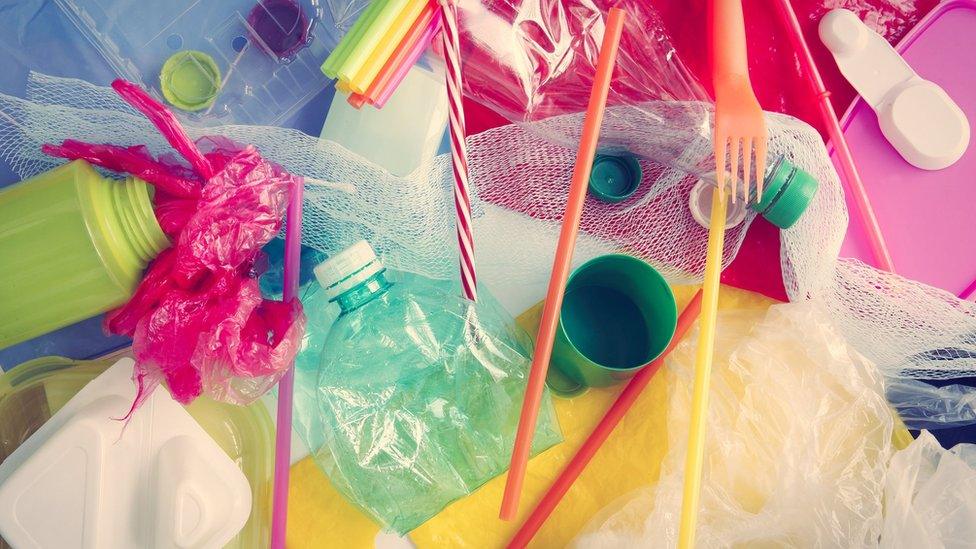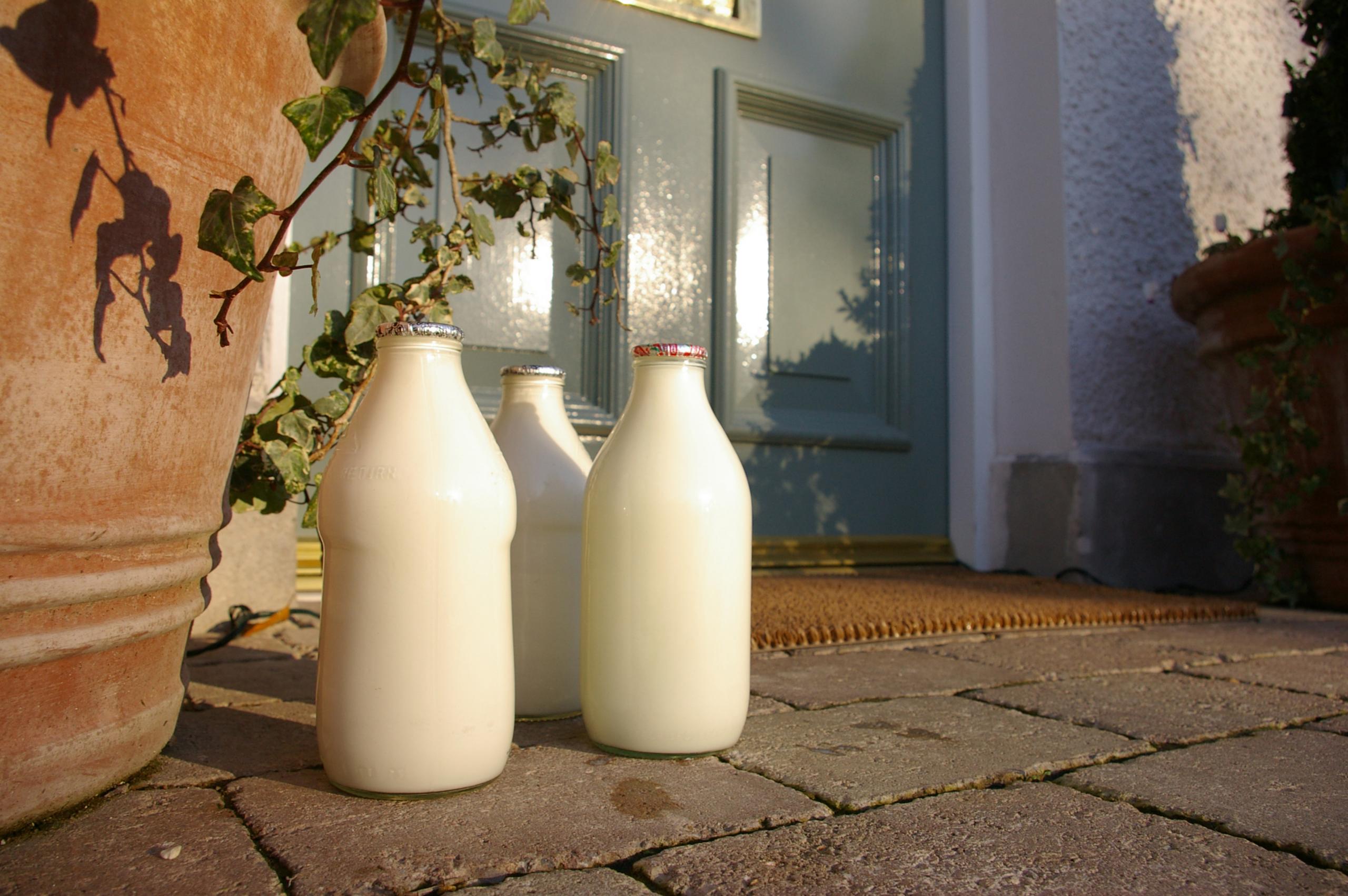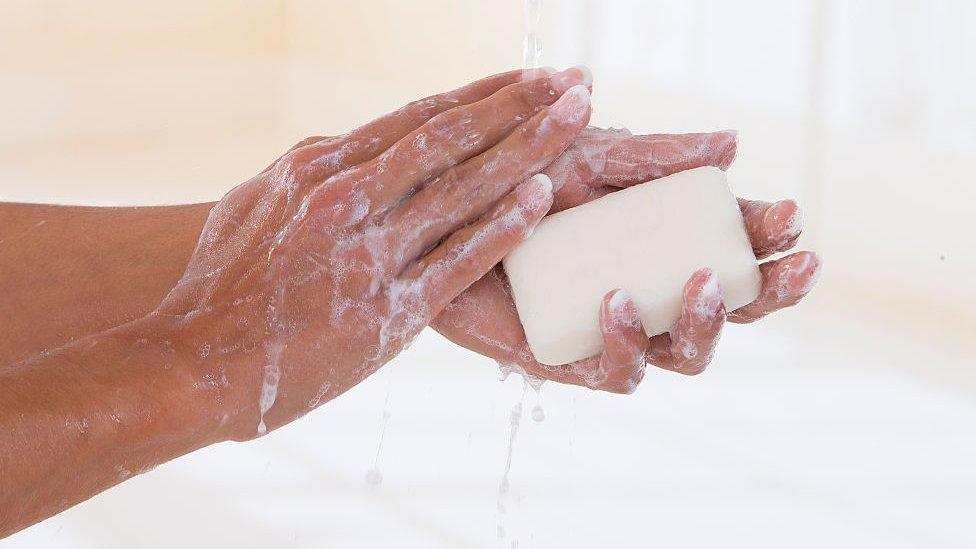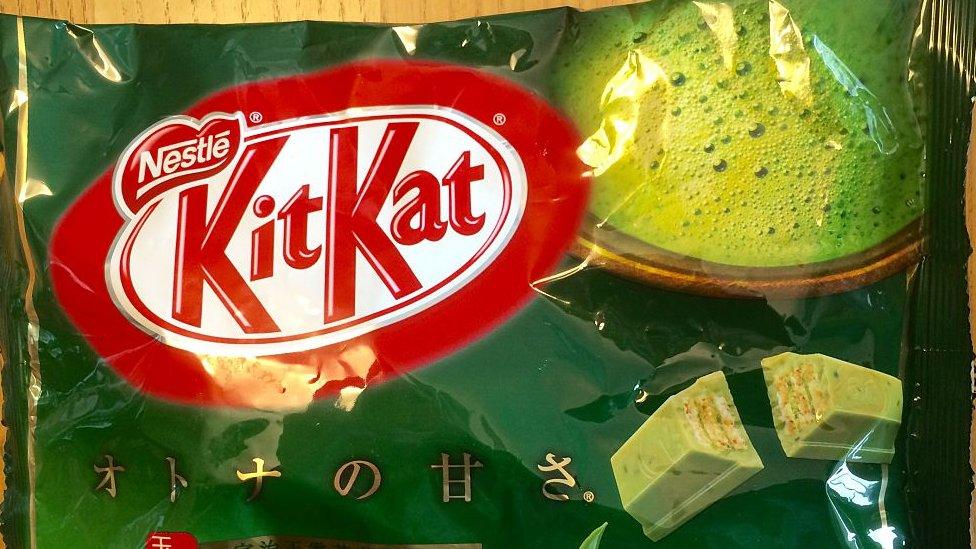Plastic pollution: The plastic alternatives making a comeback
- Published
- comments

Could old-style containers help us to tackle plastic pollution?
In the battle to deal with the plastic in our lives, some old tech is making a comeback as people choose to reuse and recycle things more - and to cut waste.
Using a glass bottles, paper bags and bars of soap is becoming more and more popular.
Let's have a look at some examples.
Glass milk bottles

Glass milk bottles were popular years ago, but now they seem to be making a return
Have you ever heard of doorstep milk deliveries?
Back in the day, milk would be dropped off on people's doorsteps. Traditionally, this was the main way people got the white stuff for their cereals - unless they had their own cow, of course!
It would be delivered in glass bottles, which people could leave out on their doorsteps when the bottles were empty, to be collected and refilled, meaning the containers for the milk weren't wasted.
Recent reports have shown that dairy companies say there's been a big growth in the number of people going back to glass bottles of milk.
Research from online grocery shop Milk & More has shown nine out of ten of their new customers now order glass milk bottles, and say they are reused 25 times on average.
The growth in glass milk bottle-buying is being put down, in part, to people wanting to see fewer plastic milk cartons in their fridges and changing to more reusable materials.
If you get up mega early one morning, see if you can someone delivering milk around the neighbourhood!
A classic bar of soap

Despite the myths, bars of soap are completely hygienic to reuse.
You may be wondering how an ordinary bar of soap can help to reduce plastic waste. Well, the answer is simple - they're reusable and plastic-free!
Liquid hand washes became popular in the 1990s, as they were very convenient and soap bars were viewed by some people as more likely to hold germs and dirt.
But now people are looking at the plastic bottles for hand and body wash, and thinking again about using them.
Scientists say it's completely hygienic and eco-friendly to swap a liquid hand wash for a bar of soap.
Watch out though - that bar of soap could still come in a plastic wrapper.
Paper bags
Paper bags are another very traditional way to cut plastic out of your life.

Some US states such as Boston have even put plastic bag bans in place.
Before plastic bags were introduced, the classic brown paper bag was used by many to carry things such as groceries and packed lunches.
They took a back seat in the 1970s when plastic bags started being widely used in the UK, but now they've started to reappear in lots of places.
Although they aren't the most durable, paper bags decompose much more quickly than plastic ones.
This means they pose less of a threat to wildlife than plastic bags, which can take 400 to 1,000 years to decompose.
Alternatively, fabric bags made from natural materials can be a reusable, more eco-friendly alternative to plastic carriers. But make sure you check the material which the bag is made from to make sure it is indeed friendly to nature.
Plastic-free houses

Accord Housing's new plastic-free design.
Years ago, before Newsround was even born, there was no plastic in homes because the material didn't even exist.
Now, not only is it everywhere in people's possessions, but it is also heavily used in the construction of homes.
Now, one builder - Accord Housing - is aiming to be the first housing group to offer completely plastic-free homes in the UK.
They're looking at plastic alternatives for kitchens, bathrooms, and the building materials for the houses themselves.
Origami food wrappers

KitKat in Japan have very different flavours - and now they'll have very different packaging
In Japan, it is thought around four million KitKat minis are sold every day - it's a very popular snack.
However, the more popular it is, the more plastic could end up in our oceans.
To tackle this problem, food company Nestlé has decided to use paper wrapping with a twist. They hope people will use it to make origami - a Japanese cultural pastime.
The new packaging is expected to reduce plastic waste by about 400 tonnes each year - about the same weight as four blue whales!
How do you reduce the amount of plastic that you use in your daily life? Do you do any of the things mentioned in this article above - or perhaps something different? Let us know in the comments below!
